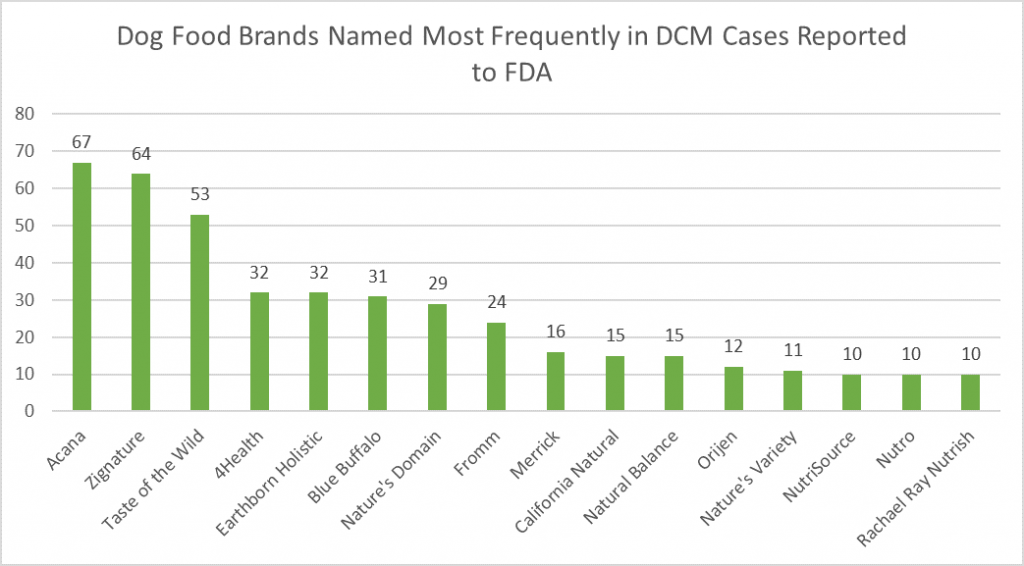You may have heard of a recent increase in incidence in a heart condition in dogs called DCM, or dilated cardiomyopathy that has been associated with feeding grain-free diets. While this problem is still under investigation by the FDA in conjunction with the veterinary community, there is more information available that we wanted to share with our members.
First, no Scottish Terriers are among the 560 dogs that were reported to the FDA for possible instance of diet-associated DCM. That doesn’t mean that Scotties are immune to problems of the heart, however DCM is not commonly found in our breed. (It’s typically been found in much larger dogs like Dobies, Goldens, and German Shepherds, along with certain spaniels.) Symptoms of DCM include shortness of breath, exercise intolerance, coughing especially upon first rising from sleep, and/or fainting. If your dog exhibits any of these symptoms, it can be an emergency situation, so consult your vet immediately.
Second, the FDA has released a list of the manufacturers whose foods have been associated with these conditions. This list is not saying that these manufacturers are liable, or that the foods are bad. However, if you are currently feeding a “grain-free” diet from one of these brands, you may want to research new options in conjunction with your veterinarian.
- Acana
- Zignature
- Taste of the Wild
- 4Health
- Earthborn Holistic
- Blue Buffalo
- Nature’s Domain
- Fromm
- Merrick
- California Natural
- Orijen
- Nature’s Variety
- NutriSource
- Nutro
- Rachael Ray Nutrish

The researchers have not yet determined what in these diets might be causing heart-related health problems in these dogs. There are no firm connections established between the lack of grain in the diets and the health issues. In the past, cats had seen increased incidence in heart issues when many commercial diets did not have sufficient levels of the amino acid taurine. In those case, supplementation with taurine reversed the issue. That is being examined in these cases of canine disease too (even though dogs’ requirements for amino acids are somewhat different than cats’). Along with questions about taurine and other necessary amino acids, the current hypotheses center around the use of peas, legumes, and/or potatoes in these diets, rather than an absence of grains — but again, nobody yet knows for sure what is happening in these cases.
From the FDA update:
“Another puzzling aspect of the recent spike in DCM cases is that they have occurred just in the last few years. The FDA is working with the pet food industry to better understand whether changes in ingredients, ingredient sourcing, processing or formulation may have contributed to the development of DCM.”
It can be frightening to think that the dog food we choose might hurt our beloved Scotties, and the news about DCM is concerning. Please remember though, that there are millions of dogs in America, and very, very small numbers of them appear to have been affected. The studies are ongoing, and the researchers have not yet found proof that it’s these specific diets that have caused the problem, or if it’s only correlated that these dogs were fed these diets, and it’s actually something else (such as treats, or pet shampoos, or who knows what). It’s even possible that the spike in reports has come about based on the coverage in the media, and that there have been a certain level of unreported incidents of DCM happening in all breeds of dogs for many years. We will be following these developments and sharing more information with you once it becomes available.

Great information!
Where can we find the breakdown by age, breed and location of the affected dogs?
Hey Debby! They unfortunately haven’t published the full dataset but you can review the findings to date from the FDA here. Since most if not all of these dog food brands are distributed nationally, I’m not sure that location information would offer many insights, but I’m sure the researchers are looking into everything!
-Lisa